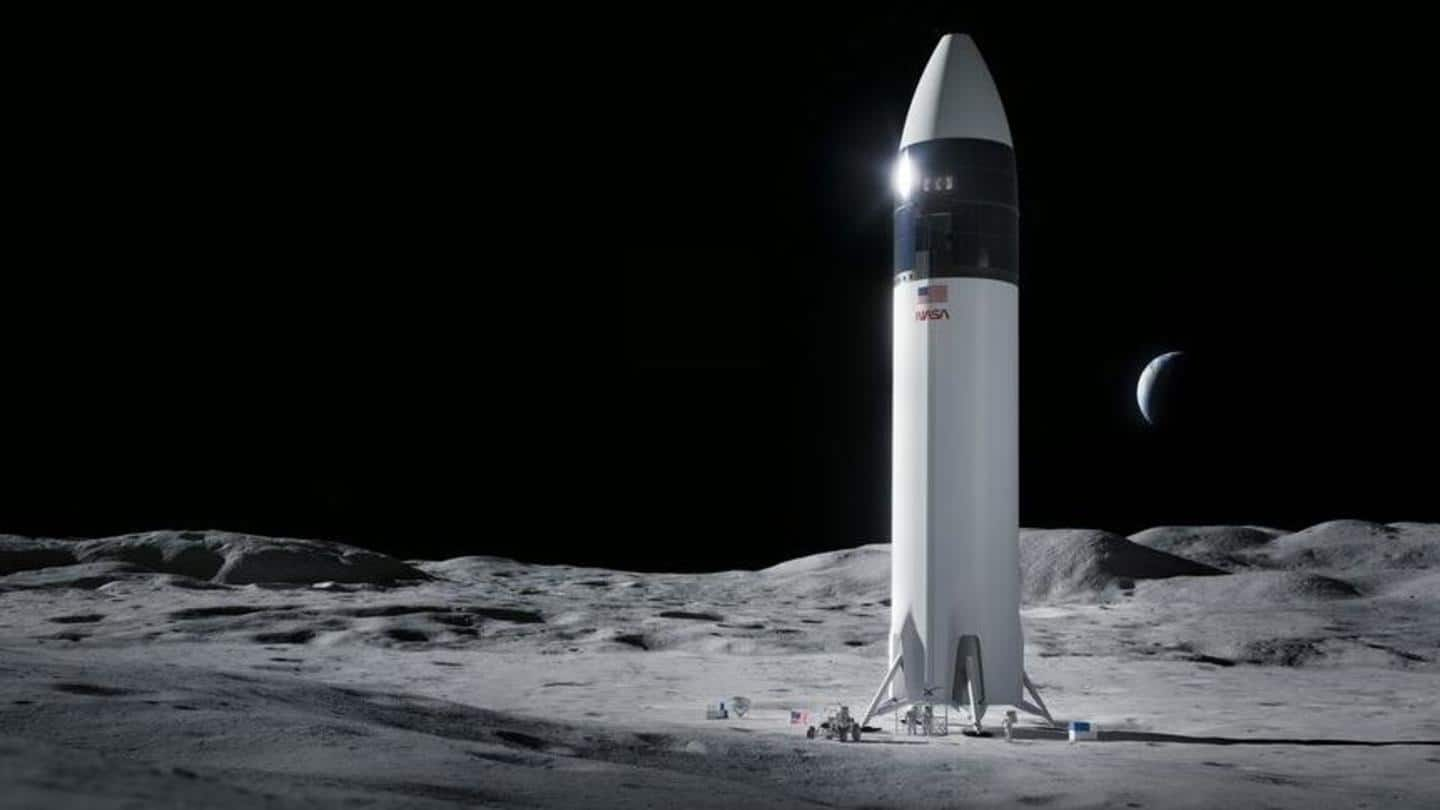
NASA wants second lunar lander for future Artemis missions
What's the story
The Artemis missions are NASA's upcoming magnum opus as the American space agency aims to build a continuous human presence on the lunar surface by the end of the 2020s.
Artemis III—the program's third scheduled flight and first crewed Moon landing mission—will use SpaceX's Starship as the lander in 2025-26.
But now, NASA has invited proposals from private companies for a second crewed lander.
Context
Why does this story matter?
NASA is yet to launch the first Artemis mission, but the agency is already preparing for the long term.
Ever since it began its partnership with the private sector, the space agency has never stuck to one partner. It keeps another one in tow to get the best results.
The agency is following the same pattern in building the lunar surface lander as well.
Second lander
NASA aims to provide redundancy and resilience with second lander
NASA has been talking about a second lunar lander since March this year. The agency aims to provide redundancy and resilience with another lander.
Now, NASA has issued an official call for proposals for sustainable Moon lander development and demonstration from private companies.
With the new solicitation, the agency aims to build a long-term foundation for deep space exploration.
Proposal
Companies have time till November 15 to submit proposals
The draft of the new solicitation was issued in March. In April, NASA also held a "virtual industry day" to provide an overview of the solicitation and give a chance to the companies to "ask clarifying questions and provide comments."
Issuing the final call now, NASA has given private companies time till November 15 to come up with proposals.
Requirement
Companies will have to conduct two lunar landing demonstrations
Any company selected under this contract by NASA will have to conduct two lunar landing demonstrations: one uncrewed and another crewed. This is similar to SpaceX's contract with the space agency.
SpaceX, too, has to conduct uncrewed and crewed demonstrations as part of the Artemis III mission. However, the Elon Musk-led company won't be part of the bidding for the second lunar lander.